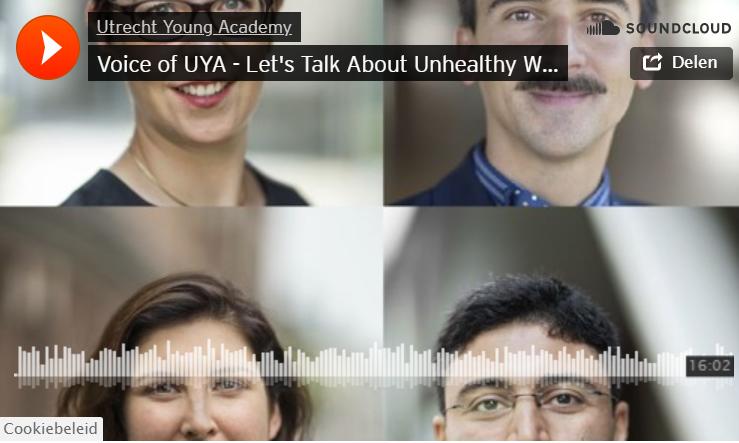The Healthy Work Alliance

World class academic research is like professional sports, so goes the saying. If we want to compete with the Chinese and the Americans, we should adjust our working hours to theirs. One has to take no break from long working hours to stay on the top. These are some of the most common advices given by prominent scientists to their apprentices, if they want to succeed in academia like their masters did. Their recommendations are hard to underrate for any young researcher who wants to find a position in the competitive and highly mobile academic job market.
There is no discussion that commitment, perseverance, and deep engagement are integral parts of curiosity-driven research. Ask any scientist to tell you an exciting experience, and she will certainly mention that time she was so engaged in her research that she lost the track of time, or when she had a new idea in the middle of the night or during her vacation. Many will tell that such euphoric experiences are among the main reasons they have chosen to sweat for an academic career.
But the hard work that are recommended “to stay on the top” does not only concern quality research time. In fact, those moments of concentration are making a smaller and smaller fraction of what academics are occupied with.
Getting more productivity from extended working hours is not that straightforward in the evolving structure of the academic enterprise. Principle investigators’ tasks are getting more similar to those of start-up CEOs, ranging from budgeting and marketing to leadership and coaching. Sadly, Administration, accounting, and management take an increasing share of their time, leaving little time for tinkering and exploration. Sometimes, without working on weekends and evenings, it is hard to catch up. In the words of Angélique Cramer, successful academics are supposed to be superheroes; a myth that this associate professor of Psychology at Tilburg University is on a mission to bust. Others are giving free advice on how to be an academic without working 60 hours a week. Meanwhile, the superstar narrative continues to focus all the responsibilities and rewards on individuals, to discourage collaborations, to inhibit diversity, and to feed a mono-culture of type-A personalities fighting for larger territories.
As long as the policy of what is good for the individual is best for the collective is enforced, academics have little choice but to continue absorbing the extra workload. Tackling the work pressure is seemingly on the agenda of some Dutch universities (e.g. UU, UvA, TUE), but on the workfloor alarms are still ringing. Until these efforts bear some fruit, academics can mainly count on each other’s support for keeping their work environment healthy and fertile. On this route, it is essential to break the stigma around talking about the unbalanced work pressure, its consequences, and share our antidotes. Together, we can create the healthy work alliance and make university a place for cultivating deep thinking and harvesting creativity.
In the sixth episode of the Voice of the Utrecht Young Academy podcast, four young researchers from four faculties talk frankly about their unhealthy work habits. We wish to promote a sincere and rational discussion on how to create a healthier working environment at the university. You can find all episodes of the Voice of UYA on Soundcloud, Stitcher, and iTunes.